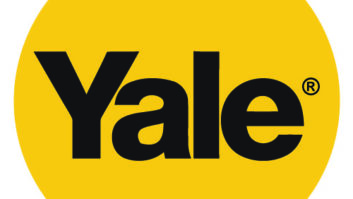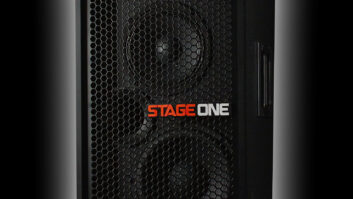Automaker competition in the car-navigation market is on the rise: Delco is expanding the availability of its low-cost Telepath 100 system, and BMW revealed plans to market a navigation system in the U.S. sometime in the second half of 1996.
Both systems incorporate Global Positioning System (GPS) satellite-tracking technology.
BMW’s Philips-made system made its debut last month in 5 Series cars during the Frankfurt Motor Show in Germany, a Philips spokesman said during the recent International Funkausstellung Fair in Berlin. A spokesman for BMW in the U.S. said the system would be offered next year in the U.S. as a factory-installed option in all 5 and 7 Series cars. Pricing hasn’t been determined.
For the U.S. launch, the spokesman said, disc-based maps will be available for at least 15 metropolitan areas. Philips said the maps are made by Navtek.
In Germany, the system’s 4-inch color LCD monitor doubles as a TV screen, said BMW’s spokesman, but he wasn’t sure whether the TV-tuner option would be available in the U.S. In Germany, a TV picture blacks out when the car travels more than 10kph.
Unlike current aftermarket systems, BMW’s system combines GPS technology, which pinpoints the driver’s location on a video map, and a route-guidance function that automatically calculates and displays a route to a destination. “It verbally tells you when to turn, and it automatically calculates a new route if you miss a turn,” the Philips spokesman added. In Europe, the map software includes a destination database.
When the system is activated, the car’s location is displayed on a map, and the location’s address is listed. A destination can be selected in three ways: First, by using an onscreen alphanumeric menu to enter the name of a town, a street address, or an establishment such as a restaurant or hotel. If a town’s name is entered, the system will guide the driver directly to its center.
Second, the driver could page through a town or street directory. And third, he or she could move a cursor over a video map.
BMW drivers select one of two display modes: an atlas-type map or a destination-guidance diagram. The map highlights the proposed route in white.
The destination-guidance diagram focuses on the recommended route and highlights turnoffs, displays arrows indicating traffic flow, and displays the distance to the next turn. A synthesized voice instructs the driver when to turn.
A route-selection function lets the driver choose between two criteria for calculating a route: the shortest possible route, which would include minor roadways, or a route involving main roads and highways.
A destination database includes information about various destinations and shows the distance to them.
Delco Telepath
While BMW plans its U.S. launch, Delco is expanding Telepath 100 distribution. It is available in Delco service centers in nine markets since the unit’s March introduction, and two more markets are planned by year’s end.
Telepath, a cassette deck that incorporates navigation functions, was rolled out in March in Chicago, Indianapolis and Detroit and has since been introduced in Cincinnati, Cleveland, Columbus, Orlando, San Francisco and St. Louis. Introductions are planned in Los Angeles and Washington, D.C. by the end of the year.
Telepath incorporates a GPS receiver that mounts on the rear deck and a dead-reckoning system as a backup when GPS signals aren’t available. The dead-reckoning function is accomplished via a compass that mounts to the windshield and a speed sensor. It uses Etak-developed databases on PCMCIA-size flash-memory cards.
Each card contains a Yellow Pages-type directory of restaurants, hotels, and other destinations and their addresses. Instead of a map, however, the system displays the distance to the destination and an arrow pointing the driver in the general direction.
A new USA flash-memory card, included in the system’s price, contains information on the distance to all major metro areas throughout the U.S., directions to them, most street addresses in each market, and some major destinations in each market, although not as many as those incorporated in the metropolitan maps, which are available from Etak for $59.
Telepath graphics can be projected onto the windshield in front of the driver with Delco’s heads-up display system.
The system is available through an 800 number at a suggested retail of $995, including a USA card. The price of cards for individual markets wasn’t available. Delco is also marketing the system to its automaker customers and to fleets.
Olds News
Oldsmobile, which introduced its GPS system last September on the Olds 88, is expanding availability to the LSS. Olds is also expanding the availability of Navtek-developed map software this month to New York state and Washington, D.C. Maps are already available for Florida, Georgia, Illinois, Indiana and Michigan.
Although software development is going slower than expected, a spokesman said, Oldsmobile said it expects maps to be available for every part of the country by the end of next year.
Like the BMW system, Oldsmobile’s $1,995 dealer-installed system incorporates GPS technology, automatic route calculation, and voice prompts.
Retailers Find Tidy Profits In Airtime Sales
By Lee Buchanan
Retailers are getting the message: There’s profit in reselling airtime to pager customers.
Amid Yousef, president of Cleveland’s 10-store Auto Accents chain, moved into airtime reselling primarily to drive traffic into his stores. But he soon found a surprisingly profitable business.
As a reseller, Yousef buys airtime at a wholesale rate from pager carrier USA Mobile, markets the service as his own, and takes responsibility for billing customers for airtime.
“What first attracted us was that each month you see a few thousand faces in your stores [to pay bills],” Yousef said. “They’re liable to buy an accessory now and then, and when they’re ready to buy a cellular phone, they’re already in your store. We got into it thinking that it wasn’t going to be profitable at all. Boy, were we surprised.”
Pager activation, along with billing and customer service, is handled at a central store. Other stores fax their contracts to that store.
Yousef credits customer loyalty for helping his paging business stay in the black.
“We’re one of the retailers that keeps its customers,” he said. “The average pager customer base churns at a rate of 10% to 12% in a month. That means you’ll lose your entire base within nine months. That’s the one big drawback to this business. The customers are chasing price all the time.” Yousef’s churn rate, on the other hand, runs between 5% and 7%.
Another key to maintaining a profitable paging business is finding a good software program to do billing, said Yousef, who was on his sixth billing program — and about to give up on the paging business — when he found a package from Miami’s Intellisoft, and “we turned a profit the third month after finding the right software.”
Denver’s nine-store Quality Auto Sound chain followed a similar path into reselling. “We now have about 1,400 or 1,500 pagers online,” said partner and buyer Larry Weingart. “It has worked well, but we had to learn quite a bit. You can’t just snap your fingers. There are some barriers, and there’s a learning curve.”
Weingart pointed to two factors that can make or break a retailer’s paging business: picking the right carrier — he chose AirTouch — and finding a quality software package. “If you’re not up on the billing, you can get in trouble real quickly,” he said.
Quality also found that reselling put it in a strong competitive position with national and regional retail behemoths. “We have a distinct advantage over the big guys for a change,” said Weingart. “Because we are tying the pager into the airtime, we’re able to offer the pagers at low profit, or even no profit. On the actual sale of merchandise, our margins are going to come down, but when you throw in the billing activity, it’s going to kick it way back up.”
Not only that, but Quality — not the carrier — collects the $20 to $25 activation fee. As a result, Quality is able to offer a Motorola Lifestyle pager for $48 compared to the typical $75 to $80 offered by other retailers.
Weingart said he has been “shocked” by the growth in his pager business: “We’ve been involved with cellular for some time. This immediately just stepped right over our cellular business.”
“The first month out, we sold more than 300 pagers and put them on services,” Weingart said. “In August we did 500. When we started out, we said we needed to sell 200 a month to make this thing successful.”
Aside from billing and finding the right carrier, Weingart pointed to staffing as a primary headache in establishing a paging service. “For every 2,500 pagers you have online,” he explained, “you’re going to have a person doing nothing but taking care of accounting and customer service.”
Quality Audio Sound set its monthly airtime price at $10.95, “but we really want our people to sell quarterly for $8.95 a month,” said Weingart. “The monthly plan has been the slowest for us, and that’s the way we want it. Even though it brings in more revenue, it’s more difficult and expensive to manage.”
Seattle-based Car Toys, the eight-store chain, went into reselling in May because “margins had eroded to such an extent that we had to have more revenue to stay in the category,” said president Dan Brettler. “Otherwise, you just sell $20 pagers, and I’m not in the business to sell $20 product all day long.”
Reselling is a “very detailed, accounting-driven” business, he said. “You’re counting quarters. In this business, 50¢ a month on a customer is a lot of money, so you really have to pay attention.”
One advantage is that, as his own carrier, Brettler can put together his own promotional packages. For example, he said, “I can decide to give away a month’s voice mail free when you purchase 12.”
MobileMedia Finalizing Details Of Acquisition
Paging carrier MobileMedia said that its planned $945 million acquisition of MobileComm was driven by a need to expand its footprint, increase its retail distribution, obtain more spectrum to meet future demand, and achieve economies of scale in an increasingly competitive market.
Pending regulatory approval, the deal is expected to close March 1. MobileMedia will pay MobileComm’s parent, BellSouth, in cash in a transaction that will be financed by an as-yet undetermined mix of bank debt and a stock offering.
With the addition of MobileComm’s 1.7 million subscribers, the combined entity will serve 3.8 million subscribers, second only to PageNet’s 6 million customers; have a marketing presence in 85 of the top 100 markers; and generate revenues of more than $560 million.
Responsibility for the combined entity’s marketing direction will reside in MobileMedia’s offices in Ridgefield Park, N.J. A spokeswoman said it’s “too soon to tell” if there will be any marketing changes but noted that MobileMedia “plans to continue most of the programs in place.”
As for two new MobileComm initiatives — the launch of ReadyTalk voice paging over cellular frequencies and beta testing of two-way messaging services — “there’s no reason to think they wouldn’t continue,” she said.
What won’t continue is one of the two carriers’ names, but which name will be kept hasn’t been determined.
Economies of scale were an important factor in buying MobileComm, because as competition heats up, “revenues per unit continue to decline,” the spokeswoman said. At the same time, however, carriers need more revenues to build the additional infrastructure needed to serve rapidly growing subscriber bases.
The acquisition will also help MobileMedia penetrate the retail market, she continued, because “MobileComm has stronger retail channels [with 15,000 storefronts] and we have stronger direct sales.”
Also as a result of the acquisition, MobileMedia will get its second nationwide license for advanced paging services in the N-PCS (Narrowband-Personal Communications Service) band and a second nationwide 900MHz one-way paging license.
Delco’s Telepath 100 is available in Delco service centers in nine markets.













